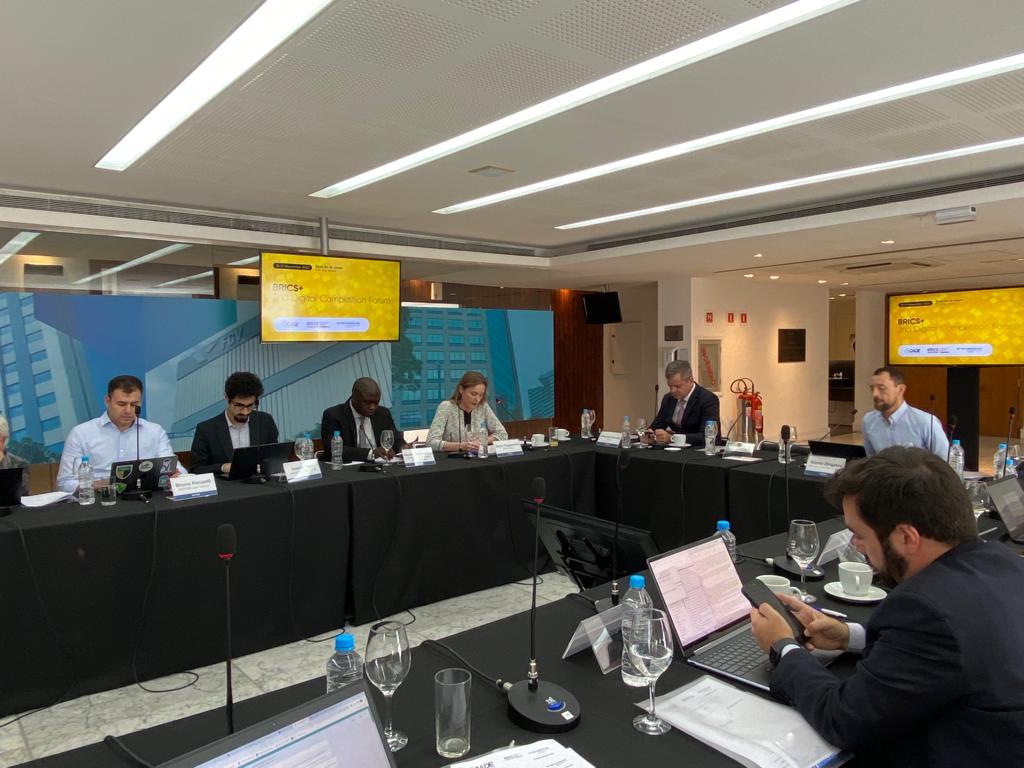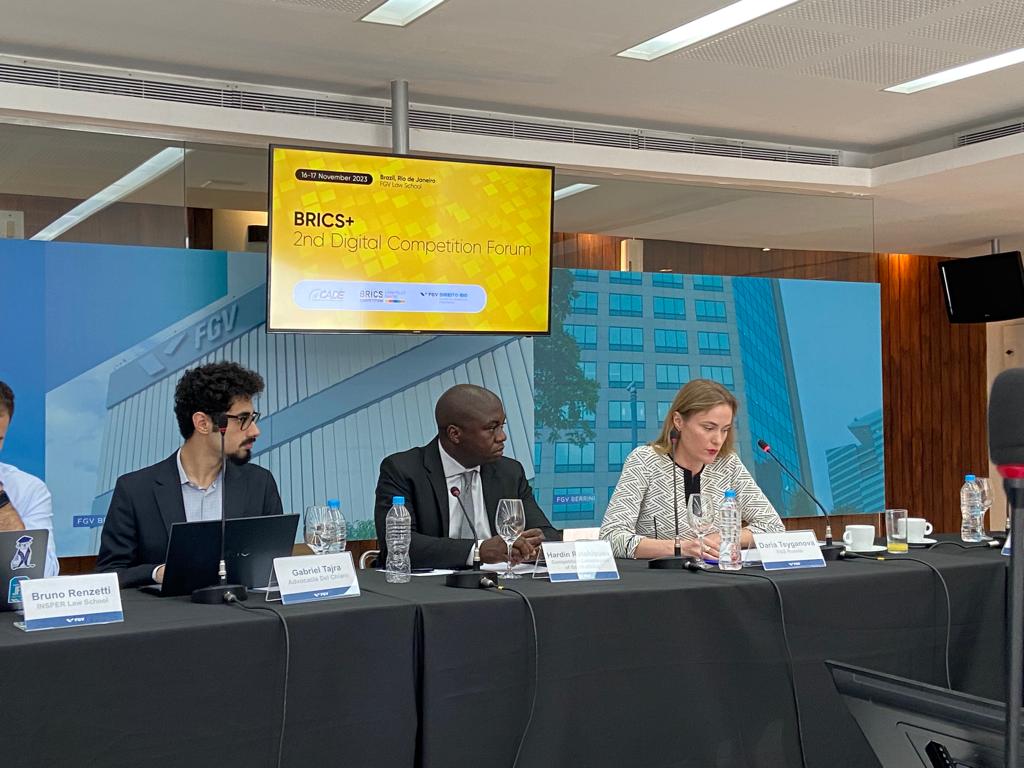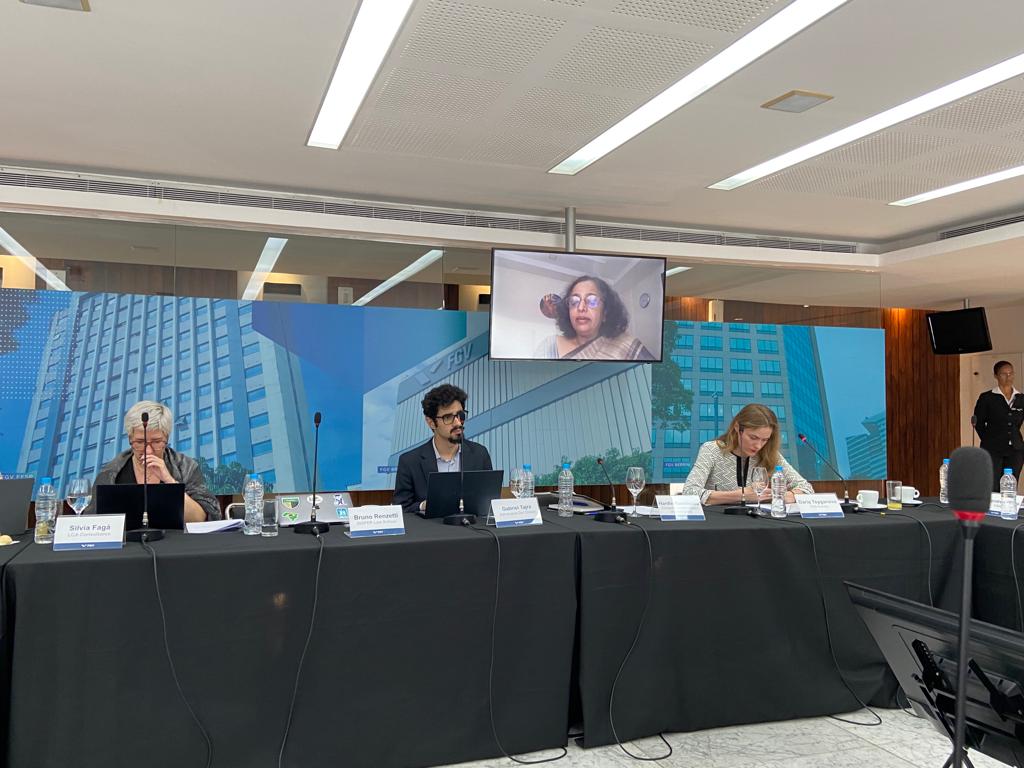On November 16, within the framework of the 2nd BRICS+ Digital Competition Forum held in Rio de Janeiro (Brazil), a meeting of the BRICS Working Group for the Research of Competition Issues in Digital Markets was held. The event was held in the BRICS+ format with the participation of representatives of the competition authorities of Argentina, Egypt and Iran.
During the meeting, the report on digital markets prepared by the Working Group was presented. Nicolo Zingales, Professor, FGV Law School Rio de Janeiro, who presented the report, described the key characteristics and types of anticompetitive practices inherent in digital platforms, and he took stock of recent trends and initiatives in the enforcement of competition in digital markets in the BRICS.

The impact of digital platforms on the economy and society raises a number of questions for competition authorities, including whether existing regulatory approaches and tools are sufficient to promote and protect the public interest. Hardin Ratshisusu, Deputy Commissioner, Competition Commission of South Africa, called for attention to ex ante regulatory models and the experience of the European Union with its Digital Markets Act (DMA) and the United States, where there are increasing calls for stricter regulation of digital giants.

Daria Tsyganova of the Federal Antimonopoly Service of Russia described innovations in the regulation of digital markets in Russia. In September 2023, the Fifth Antimonopoly Package came into effect, aimed at curbing abuse of dominant position by owners of digital platforms. In July 2023, the Interstate Council on Antimonopoly Policy (ICAP) approved the Model Principles and Standards for the activities of digital Market participants in the CIS member states.model principles for participants in the digital markets of the CIS member states developed by the FAS. The document is designed to promote the development of the institution of self-regulation and create conditions for the formation of open, transparent, non-discriminatory conditions for doing business on digital markets. Work is currently underway to create similar model principles for participants in the BRICS digital markets, and the final discussion of the document will take place at a meeting of the Working Group next year in Kazan.

The Competition Commission of India's (CCI) investigations into digital markets have been on the rise in recent years. These have ranged from search engines and social networks to food delivery services and payment systems, said Ms. Jyoti Jindgar Bhanot, Advisor, CCI. She provided a brief overview of CCI's most significant digital cases, including cases involving Google's abuse of its dominant position in the Play Store and in the Android device market.
Not long ago, China's State Administration for Market Regulation (SAMR) published draft amendments to the “Provisions on Prohibiting Monopoly Agreements”, proposing to add a provision prohibiting companies from entering into monopolistic agreements based on data, advantages in algorithms, technology or capital, and platform rules. Ma Zongxu, Vice Director, Office of Merger Review in Digital Economy, Second Department ofAnti-Monopoly Enforcement, SAMR, provided more details on the agency's recent initiatives in the digital economy. He emphasized the importance of striking a balance between regulation and promoting development, and the need to enhance a permanent regulatory mechanism for the platform economy to ensure its healthy and sustainable development.
Catalina Aldama, National Director of Competition Promotion, Comisión Nacional de Defensa dela Competencia of Argentina, noted that her agency is currently conducting four investigations in the digital economy sector, including against WhatsApp (owned by Meta — banned and designated as extremist in Russia)) in connection with its updated privacy policy and Alphabet. The Commission has also set up a research working group on digital markets.
“For us, cooperation with other agencies is crucial as it allows us to learn how different digital markets work and how they are analyzed from an antitrust perspective by other authorities. This permits us to be prepared for cases that may arise in the future. It is also important for us to know how antitrust law and sector-specific regulations relating to digital markets, such as data protection and privacy, as well as specific regulations on artificial intelligence, which we do not have yet, interact in the BRICS countries,”
Catalina Aldama said.
Mahmoud Momtaz, Head of the Egyptian Competition Authority (ECA), discussed the specifics of the new merger control regime in Egypt. In addition, he briefly highlighted recent antitrust cases against online platforms for abusing their dominant position by using most-favored-nation (MFN) clauses in violation of Egyptian competition law.
The first meeting of the BRICS Working Group for the Research of Competition Issues in Digital Markets was held in 2018 in Sao Paulo, Brazil. The main objectives of the Working Group are to share experience among BRICS regulators in combating anticompetitive practices in the digital economy, to review and discuss cases involving new types of competition in the digital economy, to review mergers and acquisitions in the digital age, etc.
The 2nd BRICS+ Digital Competition Forum was organized by the International BRICS Competition Law and Policy Centre together with the FGV Law School and the Brazilian competition authority CADE. The forum participants include representatives of regulators from the new BRICS member countries that will join the organization in 2024, in particular Egypt, Argentina and Iran. Antitrust practitioners and researchers from BRICS countries and Europe are also participating in the forum.




